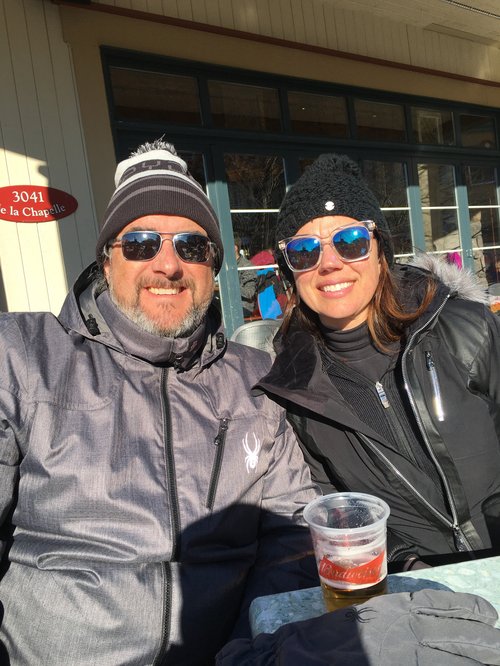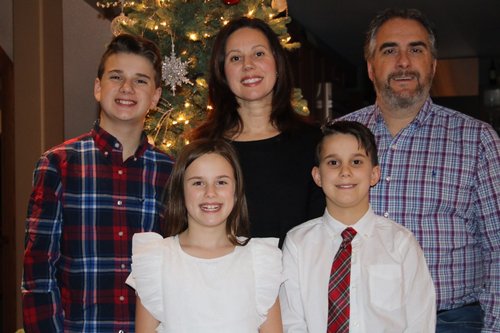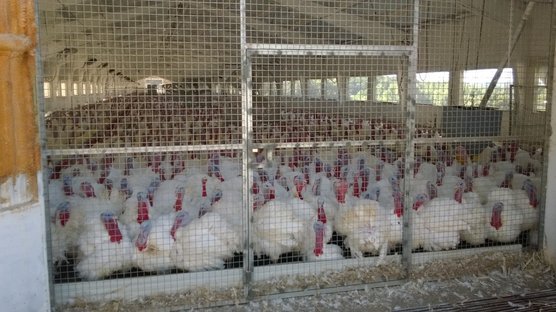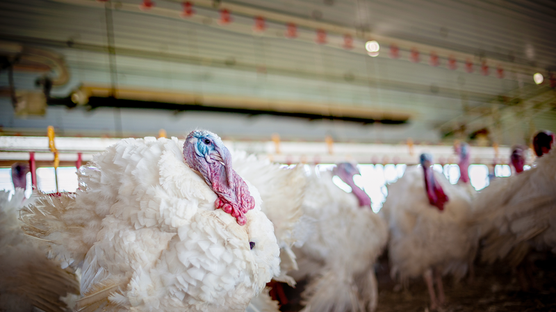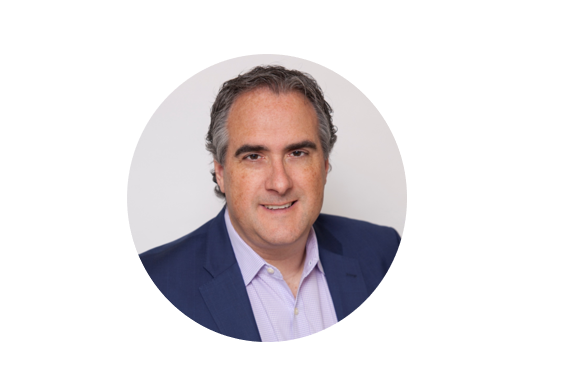
Published on April 2, 2019
Get to know our team: Jeff McDowell
As the father of competitive skiers, Jeff McDowell sees the importance of hard work and dedication in order to achieve a goal.
Winning a race is not based on natural talent alone. It is a combination of this talent, the right coaching and a mindset to win that helps one reach success. This philosophy of hard work and continuous learning runs throughout Jeff’s career. Learn more about his journey in the turkey industry leading to his current position as General Manager, Americas for Hybrid Turkeys.
Can you tell me a little about your background in the industry?
I went to school for economics, political science, and professional writing. I’m also a Chartered Professional Accountant. I attended both Wilfrid Laurier University and University of Toronto. My work history was originally focused in accounting, finance, and costing, but over time transitioned to operations and sales.
I started working for Maple Leaf Foods as a summer student in Accounts Payable and then moved into Costing. Over a number of years, I moved from finance to operations. Eventually I became the VP for the Turkey Division and following that, the Poultry Division. I was there for 16 years.
Following my time at Maple Leaf Foods I moved to Sofina Foods as VP in their poultry business, where I was able to experience working for a privately held company as opposed to a public company. This position involved a lot of travel, which became too demanding. It was difficult decision to leave this position, because I really enjoyed the company and the people, but the time away from home was too much for me and my family.
It was a short while later when I connected with Dave Libertini and began conversations about opportunities within Hendrix Genetics. Before long, I joined the team. That was in February 2018.
What do you find to be the most rewarding and challenging about working in the industry?
I like working within the agriculture and farming sectors. It feels good to be a part of a system that is sustaining our society, as people will always need to eat. The food industry is a good place to work as it is somewhat recession proof versus other types of businesses. When I served on both the boards for Turkey Farmers of Canada and Chicken Farmers of Canada, it was great to see how people from various backgrounds… farmers, processors, restaurant operators… would collaborate together for the good of the industry.
The challenging aspect, especially for North America, is to increase turkey consumption. It’s not something our company can address directly, but we do need to adapt in terms of how we operate. We have a great team and excellent products. Our objective is to bring more value to the turkey value chain so turkey can continue to be a cost-competitive choice for consumers.
In the span of about a year and a half, Hybrid has revitalized the turkey distribution network in the USA. Now, 3 months into operation, can you speak to the positive effects noted so far? What are the areas of improvement you are working on?
The biggest positive to focus on is that the network was delivered on time. This is why we’ve adopted the phrase, “They said it couldn’t be done”. There was a lot of speculation during the building phase, that the timelines weren’t reasonable and that we wouldn’t deliver on time. Of course there were hiccups along the way, but we have a great team that persevered and pulled together in order to reach the finish line.
As far as distribution, trucking has been a challenge. Because of the high demand, it is well-known that transport is a challenge throughout North America. We have lived through some challenges on the trucking side of things, and we’re learning how to adapt. From a quality perspective, our new Beresford hatchery has done a very good job at producing high quality poults. However, it’s important to note that with a hatchery, any adjustments or changes that are made take 28 days to see the result, and to let those adjustments work their way through the hatchery. Our customers understand that, and we’ve received a lot of good feedback. We’ve heard from some, “these are the best poults I’ve ever had,” and that we’re delivering what we promised. This is all unsolicited feedback that tells us we’re on the right track.
All in all, the execution has gone very well. Also, keep in mind that the North American organization has never executed this type of transformational project before. This is the first large commercial hatchery we’ve ever built in North America. Although we drew on our global knowledge throughout Hendrix, when it’s time to build the next one, we’ve got all the learnings to do it even better next time.
What do you think will be important for the future success of the turkey industry?
As I’ve already mentioned, we must remain focused on increasing turkey consumption, but I also think an important area to focus on is investment in new markets. One new market that was discussed at a recent National Turkey Federation (NTF) Convention was India. It offers great opportunities, but comes with a few challenges. One such challenge with India is that the product must meet Halal requirements. For example this means specialized processes during slaughter and the birds also require a vegetable grain diet for that market. The demand for turkey meat in this market is generally for dark meat, so it’s a challenge for the industry to develop demand for breast meat in order to balance the use of the bird. The question remains: How can we service this emerging market in an economical way?
As far as increasing consumption, the Turkey Farmers of Canada are now embarking on a $5 million per year marketing plan that both processors and growers are going to contribute to, through levies, to promote turkey products and increase consumption. Similarly in the US, NTF has a long-term project aimed at increasing turkey consumption by 2020. At the 2019 Winter convention, NTF presented some of the metrics of this turkey demand project, highlighting that it is still a large focus. They also ran a turkey smoke event which showcased an example of a new way to drive consumption in non-traditional markets. Both of these national, industry-wide initiatives are important for the future success of the industry and to address stagnant consumption.
What have been your personal keys to success in your career?
I’ve been lucky enough to learn from many strong leaders in my career. Many of the techniques I’ve developed are things that I’ve learned from working with different people. For me, continuous learning is very important. Who are the good leaders in your company, and who can you emulate and learn from? Hendrix Genetics offers many personal development programs, which are a great way to learn in a classroom setting. However, it’s also important to look at the leaders who inspire you, to help you along the way. I still keep in contact with past colleagues to discuss general career insights and coach each other. The younger generation does this quite well since they have grown up networking and sharing via social media. Continuous learning and watching leaders you admire is important, but it’s also important to share your own insights with those around you.
Outside of work, what could we find you doing, listening to, reading, watching?
My family plays an important role. In the winter, my kids are competitive skiers, so our weekends are very busy racing at different ski clubs. I’ve been skiing since I was 6, so it’s great that the whole family enjoys it… it’s a great family sport. In the summer, we like to relax by the pool, take vacations, and spend time with our extended family that live nearby. My boys are getting into golf more and more, so I’m sure we will play a few rounds when the snow melts. My kids also play flag football, so throwing the ball around and playing pick up games on the street is always fun too. I like to watch baseball during the season, but my wife, Anna, is encouraging me to curb that hobby. I can’t help that I’m a die hard Blue Jays fan! Goes back to 1992/93… we’ll see how that goes.

